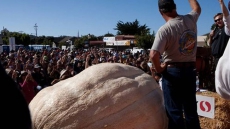By analysing 65-million-year-old ankle bones, paleontologists from Yale University have found that Earths earliest primates were tree dwellers.
The fossil ankles of Purgatorius, a small mammal that lived on a diet of fruit and insects, were collected from sites in northeastern Montana.
"The study will change what students are learning about earliest primate evolution and will place Purgatorius in the trees where it rightfully belongs," said Stephen Chester, the paper's lead author.
Purgatorius, part of an extinct group of primates called plesiadapiforms, first appears in the fossil record shortly after the extinction of non-avian dinosaurs.
Some researchers have speculated over the years that primitive plesiadapiforms were terrestrial, and that primates moved into the tree canopy later.
These ideas can still be found in some textbooks today.
But the identification of Purgatorius ankle bones gave researchers a better sense of how it lived.
The ankle bones have diagnostic features for mobility that are only present in those of primates and their close relatives today.
These unique features would have allowed an animal such as Purgatorius to rotate and adjust its feet accordingly to grab branches while moving through trees.
"In contrast, ground-dwelling mammals lack these features and are better suited for propelling themselves forward in a more restricted, fore-and-aft motion," Chester said.
The research appeared online in the journal Proceedings of the National Academy of Sciences.





